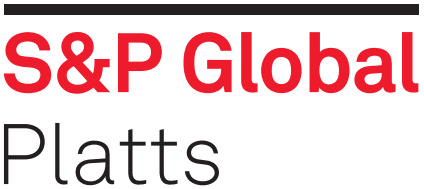
ArcelorMittal, cut its 2019 outlook for global steel demand on weak manufacturing and automotive sector, the world’s largest steelmaker said in its earnings.
ArcelorMittal expects global apparent steel consumption, or ASC, to grow in 2019 between 0.5% to 1.0%. This is towards the lower end of previous guidance of 0.5% to 1.5%. The Luxembourg-based group forecast European demand would contract 3% in 2019 compared with a previous estimate of minus 1% to plus 2% amid a struggling car industry and slowing construction exacerbated by supply chain destocking.
During the call with the analysts AM stressed how European market is exceptionally low and unsustainable but they noticed some stabilization in the demand and prices. During the call AM said the fact that the EC safeguards review put the import relaxation to 3% rather than 5% is better but with still such low demand this will allow imports to have a large market share.
The company welcomed the decision of the EU to include in their agenda the possibility to introduce a green border adjustment to ensure that imports into Europe face the same carbon costs as producers in Europe in order to compete on a same level playing field.
Given the weak market environment AM took the decision in May 2019 to temporarily reduce European primary flat steel production. It announced a 4.2 million mt of annualized production curtailments for the second half of 2019 were announced, equivalent to 10% of AM Europe flats capacity to bring supply in line with addressable demand. AM said that they are on track to achieve the planned 4.2 million mt annualized production curtailments for second half of 2019.
“We will continue to look to adapt our footprint in line with the challenging market backdrop as necessary to meet addressable demand.”
In the US, ASC is now expected to contract by between 0.5% to 1.0% in 2019 (from previous forecast of up to 1.0% growth), with ongoing weakness in automotive demand and a slowdown in machinery offset in part by healthy non-residential construction demand.
In Brazil, ASC growth in 2019 is forecast at around 0.5%-1.0% (a moderation from previous forecast of 1.5%-2.5%) driven by delayed growth in infrastructure spend, ongoing supply chain destocking, as well as impacts of the Argentinian recession. In the CIS, expected ASC growth in 2019 has been upgraded to 2.5%-3.0% from previous estimate of 1.0%-2.0% led by robust demand in Russia.
Overall, World ex-China ASC in 2019 is now expected to be stable in 2019 from previous guidance of 0.5%-1.0%. In China, overall demand expectations have been increased again and AM now forecast growth of between 1.5%-2.0% in 2019 as real estate demand continues to remain robust.
Given these demand expectations, the Group’s steel shipments are now expected to be stable in 2019 versus 2018 (revised from previous guidance of an increase year-on-year). Market-priced iron ore shipments for FY 2019 are still expected to be stable as compared to FY 2018.
Total steel shipments in 3Q 2019 were 1.7% lower as compared with 20.5 million mt for 3Q 2018. Excluding the impact of the ArcelorMittal Italia acquisition net of the remedy asset sales, steel shipments were 1.6% lower as compared to 3Q 2018.
Sales in 3Q 2019 were $16.6 billion compared with $19.3 billion in 2Q 2019 and $18.5 billion in 3Q 2018. Sales in 3Q 2019 were 10.2% lower as compared to 3Q 2018 primarily due to lower average steel selling prices (down 11.1%), lower steel shipments (down 1.7%) and lower market-priced iron ore shipments (down 1.5%) offset in part by higher seaborne iron ore reference prices (up 52.6%).




